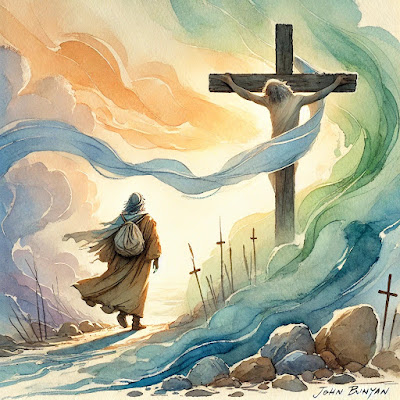Between Loss and Renewal
Navigating Grief Between Abel’s Death and Seth’s Birth
From Mourning to Mercy
Eve’s Path Through Tragedy to Hope
Adam knew his wife again,
and she bore a son and called his name Seth,
for she said, ‘God has appointed for me another offspring
instead of Abel, for Cain killed him.
Genesis 4:25
The early chapters of Genesis narrate profound events that shape human history: creation, fall, fratricide, and the continuation of lineage. Among these narratives lies a subtle yet significant period—the gap between Abel’s tragic death and the birth of Seth. This interval, though not detailed in Scripture, invites contemplation on themes of grief, hope, and God’s faithfulness.
The Chronology: Understanding the Timeline
Scripture provides specific ages that help frame this period:
• Genesis 5:3 notes that Adam was 130 years old when Seth was born.
Given that Cain and Abel were born after Adam and Eve’s expulsion from Eden and before Seth’s birth, it’s plausible that Abel’s death occurred when Adam was between 120 to 130 years old. This suggests that Adam and Eve endured the loss of Abel and the estrangement of Cain for perhaps a decade or more before Seth’s arrival.
The Weight of Grief: Living in the In-Between
The Bible does not elaborate on Adam and Eve’s experiences during this period. However, one can imagine the depth of their sorrow: the loss of a son to murder and the effective loss of another to exile. This dual tragedy might have cast a long shadow over their lives, a period marked by mourning, reflection, and a yearning for restoration.
The Birth of Seth: A Testament to Renewed Hope
After this indeterminate period of grief, Eve gives birth to Seth. Her proclamation, “God has granted me another child in place of Abel, since Cain killed him” (Genesis 4:25), reflects a profound acknowledgment of divine mercy and restoration. Seth’s birth symbolizes a new beginning, a continuation of the divine promise amidst human brokenness.
Theological Reflections: Lessons from the Silent Years
1. Endurance Through Uncertainty: The gap underscores the human experience of enduring prolonged periods of pain and uncertainty, awaiting divine intervention.
2. Faith Amidst Silence: Adam and Eve’s story during this time, though unrecorded, likely involved a deep reliance on faith, teaching us about trusting God’s plan even when immediate evidence of His work is not visible.
3. Restoration and Continuity: Seth’s birth signifies that God’s purposes prevail despite human failures, ensuring the continuation of His redemptive plan.
Embracing the In-Between Moments
The gap between Abel’s death and Seth’s birth, though briefly mentioned, carries profound implications. It serves as a reminder that in life’s silent and painful intervals, there lies the potential for renewal. God’s faithfulness persists, bringing hope and restoration, even when the path is shrouded in uncertainty.
Reflecting on this period encourages us to find solace in God’s unwavering commitment to His creation, trusting that after seasons of loss, there awaits the promise of new beginnings.
Prayer:
Heavenly Father, in the quiet stretches of our grief, when answers seem distant and comfort feels fleeting, remind us of Your unwavering presence. Just as You granted Eve the blessing of Seth after her profound loss, instill in us the hope that renewal follows sorrow. Help us to trust in Your perfect timing and to find solace in Your promises. May our hearts remain steadfast, knowing that even in our deepest pain, You are at work, bringing forth new beginnings. Amen.








